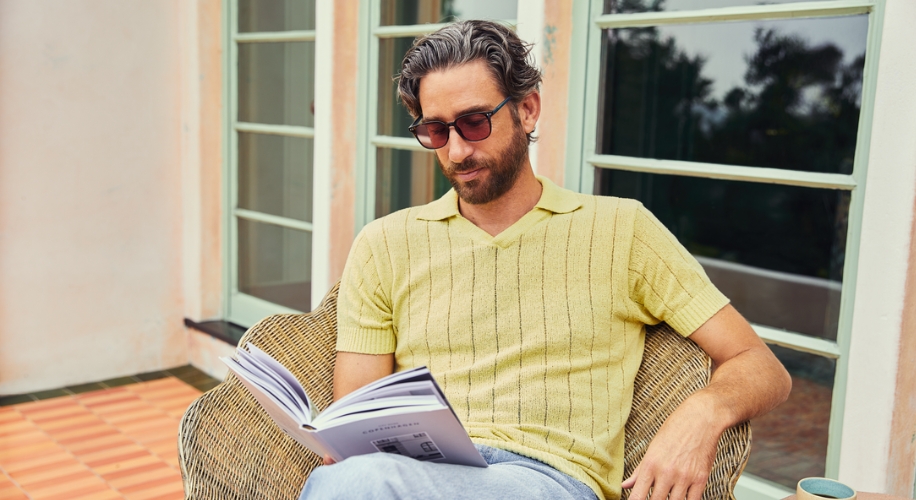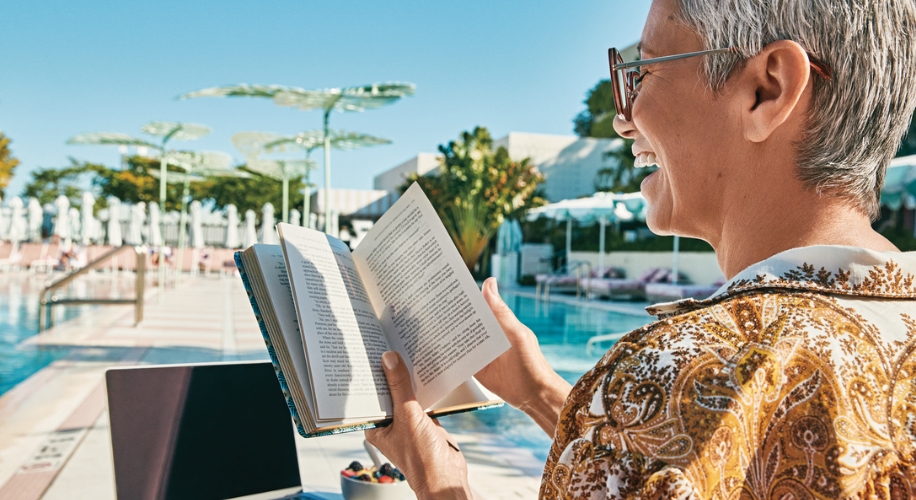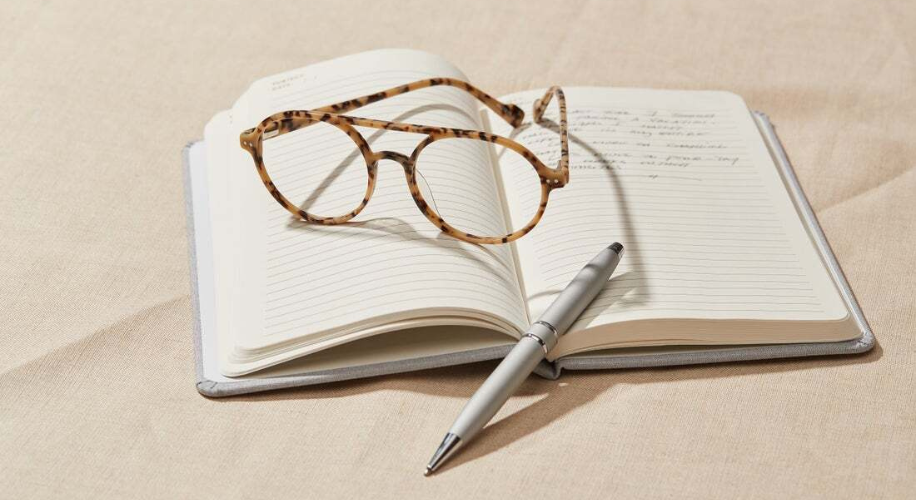Optimal Reading Glasses Magnification
- BY Dr. Sophia Moh
- IN Glasses

As we age, it’s common to experience changes in our vision, particularly when it comes to focusing on close-up tasks like reading. This condition, known as presbyopia, can make reading fine print a challenge. Fortunately, reading glasses can offer a simple and effective solution. Here’s how to find the right magnification for your needs, ensuring clarity and comfort without compromising on style.

Understanding Your Magnification Needs
The first step in selecting reading glasses is to determine the level of magnification, or diopter strength, that best suits your vision. Reading glasses magnifications typically range from +1.00 to +4.00 diopters, increasing in increments of +0.25. To find your ideal magnification:
- Start with a reading test using a printed chart or an online tool. A reading chart displays lines of text in various font sizes, corresponding to different diopter strengths.
- Hold the chart at a comfortable reading distance – usually about 14 to 16 inches away from your face.
- Without glasses, read the chart from top to bottom. The first line of text that appears clear and sharp will indicate your approximate magnification level.
Keep in mind that self-tests are a starting point. An eye exam with a professional is crucial to identify any underlying issues and to get an accurate prescription.

Choosing the Right Pair of Reading Glasses
Once you’ve determined your magnification level, it’s time to choose your reading glasses. Consider the following:
- Frame shape: Select a frame shape that complements your face. Use our face shape detector to guide your choice.
- Lens type: If you require different strengths for different tasks, consider progressive lenses, which provide a gradient of magnifications.
- Comfort: Look for glasses with a comfortable fit that don’t slip down your nose or press into your temples. Adjustable nose pads and temple lengths can help achieve a custom fit.
While aesthetics are important, don’t compromise on functionality. The right pair of reading glasses should feel as good as they look.

Maintaining Your Reading Glasses
Proper care will extend the life of your reading glasses. Always store them in a case when not in use, and clean the lenses with a soft microfiber cloth. Avoid using household glass cleaners, as they can damage the lens coating. Small adjustments can often be made at home, but if there’s significant damage or discomfort, it’s best to consult with an eye care professional.
At Zenni Optical, we understand the importance of finding the perfect pair of reading glasses. With our wide selection and helpful resources, we strive to make the process straightforward and enjoyable. Remember, regular eye exams are key to maintaining optimal vision health. Whether you’re looking for your first pair of readers or an upgrade, we’re here to assist every step of the way.
About the Author: Dr. Sophia Moh, OD, ABOC
Dr. Sophia Moh, OD, is an optometrist based in the Bay Area, California. She holds a doctorate from UC Berkeley School of Optometry and has worked in various eye care settings, including primary care optometry, general ophthalmology, community health clinics, and Veterans Affairs. Dr. Moh is dedicated to improving global vision health by making high-quality, affordable eyewear accessible to all. She is also a certified American Board Optician (ABO) and actively contributes to optical education through training and lectures.
